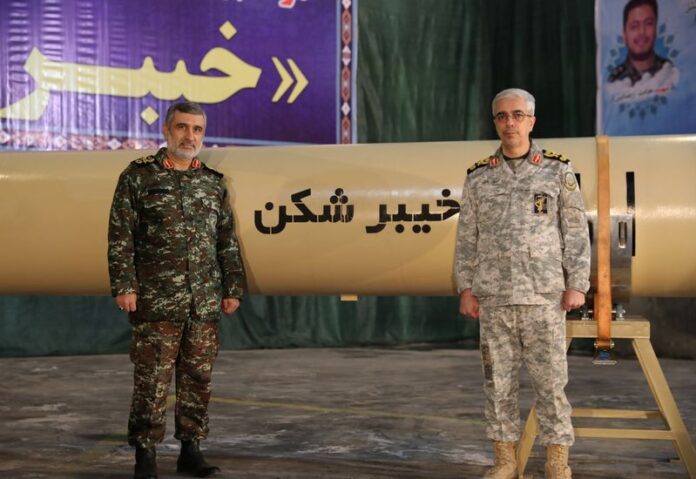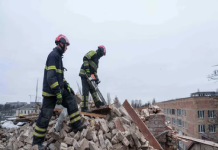
DUBAI, Feb 25 (Reuters) – Iran has developed a cruise missile with a range of 1,650 km (1,025 miles) a top Revolutionary Guards commander said on Friday, in a move likely to raise Western concerns after Russia’s use of Iranian drones in the Ukraine war.
Separately, Amirali Hajizadeh, the head of the Revolutionary Guards aerospace force, also spoke of Iran’s often repeated threat to avenge the U.S. killing of a top Iranian commander, saying “We are looking to kill (former U.S. President Donald) Trump.”
“Our cruise missile with a range of 1,650 km has been added to the missile arsenal of the Islamic Republic of Iran,” Hajizadeh, told state TV.
The television broadcast what it said was the first footage showing the new Paveh cruise missile.
Hajizadeh said Iran did not intend to kill “poor soldiers” when it launched a ballistic missile attack on U.S.-led forces in Iraq days after Iranian military commander Qassem Soleimani was killed in a U.S. drone strike in 2020 in Baghdad.
Magnitude 5.5 earthquake strikes Central Turkey region – EMSC
“God willing, we are looking to kill Trump. (Former Secretary of State Mike) Pompeo … and the military commander who gave the order (to kill Soleimani) should be killed,” Hajizadeh said in a television interview.
Iranian leaders have often vowed to take revenge on Soleimani in strong terms.
Iran has expanded its missile program, especially ballistic missiles, despite opposition from the United States and concerns from European countries. Tehran says the program is purely defensive and deterrent in nature. Iran said it supplied drones to Moscow before the war in Ukraine. Russia uses drones to attack power plants and civilian infrastructure.
In November, the Pentagon said the United States was skeptical of reports citing Hajizadeh that Iran had developed a hypersonic ballistic missile.





